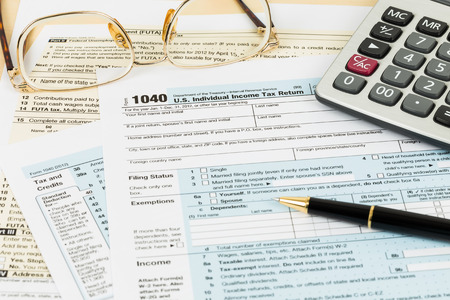 Buying a home is an exciting and exhilarating time. Between the time your offer is accepted, and when you finally have keys in hand and you are ready to step into your new home, it can be stressful. The escrow period, also known as the closing, can take the most easygoing home buyer to the brink of insanity.
Buying a home is an exciting and exhilarating time. Between the time your offer is accepted, and when you finally have keys in hand and you are ready to step into your new home, it can be stressful. The escrow period, also known as the closing, can take the most easygoing home buyer to the brink of insanity.
After you have negotiated your best price and come to an agreement, there are ways to make the escrow process less anxiety-provoking. Here are some tips from top real estate agents to help you get through the escrow process without losing your cool.
Utilize Your Professionals
Trust your real estate agent and home financing professional to walk you through the entire process is key to a smoothly closing escrow. Rely on them to do their job, but don’t be afraid to express any anxieties, and lean on them during negotiations and inspections. They are the experts, so ask questions and ask for advice, but try not to second guess their guidance or recommendations.
Your additional trusted partner is your mortgage professional. They know how important the financing piece is to this equation and they will be sure to know your timeline and be available to answer questions and assist you throughout this process.
Stay Organized
Chaos rarely inspires confidence. Stay on top of all paperwork and make sure you sign and return everything to your lender promptly to eliminate delays. The lender and escrow company want the sale to close in a timely fashion, too, so don’t slow them down by being disorganized or failing to return important documentation such as income tax information or bank statements.
Maintain A Healthy Perspective
No home is perfect, so be prepared for inspections that bring some daunting news. Ask to be present when the inspections are performed. The more information you have about your prospective home, the better you will be prepared to negotiate for repairs before they surprise you in the future.
Ask for credits and repairs as needed, but try to remain objective. Some seemingly minor fixer projects can lead to a much longer time table. You may decide that, when considering the bigger picture and a timely transaction, a couple thousand dollars might not actually be a worth negotiating.
Be Flexible
Retain as much flexibility as possible during the closing process and focus on the big picture, rather than all of the details. When opening escrow, ask your agent to give you an overview of the expected timeline from beginning to end. Knowing what to expect, and when as well as being aware of projected milestones goes a long way in reducing anxiety. You can, and should, ask to be notified when important milestones are reached.
While you might have it penciled in on your calendar, it’s common for closing dates to change. Instead of thinking of your closing date as set in stone, think of it as a flexible target. Do not book movers until the last minute, so you won’t be stressed if your belongings are all packed in a truck and the escrow date is set forward a day or two.
Don’t forget to breathe!
This is an important time to take care of yourself. Take a run, meditate, or do yoga. Read a book or enjoy a hobby. Moving can be a physically taxing event, so take the time now to relax before the big move.
Before you know it, you will be moving into your new home. Being informed, staying organized and taking care of yourself are key elements. Most important, though, is to rely on your trained professionals to guide you through this process and help to ensure a stress-less closing.
 According to the 2017 Home Buyer and Seller Generational Trends Report, Millennials bought 34% of the homes sold; the largest of any generation last year.
According to the 2017 Home Buyer and Seller Generational Trends Report, Millennials bought 34% of the homes sold; the largest of any generation last year.  One of the challenges you will face when deciding how much money to put down on your new home is whether to put down a larger down payment or to take a bit of money from your down payment and use it to buy “discount points” to lower your interest rate.
One of the challenges you will face when deciding how much money to put down on your new home is whether to put down a larger down payment or to take a bit of money from your down payment and use it to buy “discount points” to lower your interest rate. Mortgage lenders weigh the risk of getting their principal and interest paid back by looking at the qualities of the prospective borrrower. And due to the amount of money being requested and lent to purchase homes, those requirements can become daunting. Working with a trusted and qualified mortgage professional makes this sometimes confusing process a little clearer.
Mortgage lenders weigh the risk of getting their principal and interest paid back by looking at the qualities of the prospective borrrower. And due to the amount of money being requested and lent to purchase homes, those requirements can become daunting. Working with a trusted and qualified mortgage professional makes this sometimes confusing process a little clearer. US homeowners now have over 5 trillion dollars in home equity which is a very large amount of money! So this year may be the year for a lot of cash out refinances and other home equity mortgage products. Most often, when you are purchasing a home, you are buying at or below the appraised value and you are making a down payment.
US homeowners now have over 5 trillion dollars in home equity which is a very large amount of money! So this year may be the year for a lot of cash out refinances and other home equity mortgage products. Most often, when you are purchasing a home, you are buying at or below the appraised value and you are making a down payment. When the chatter was at its peak on the 2018 tax law changes being proposed, one of the big areas of concern for homeowners was the elimination of the mortgage interest deduction. Right behind that issue was a similar treatment with regards to property tax deductions.
When the chatter was at its peak on the 2018 tax law changes being proposed, one of the big areas of concern for homeowners was the elimination of the mortgage interest deduction. Right behind that issue was a similar treatment with regards to property tax deductions.